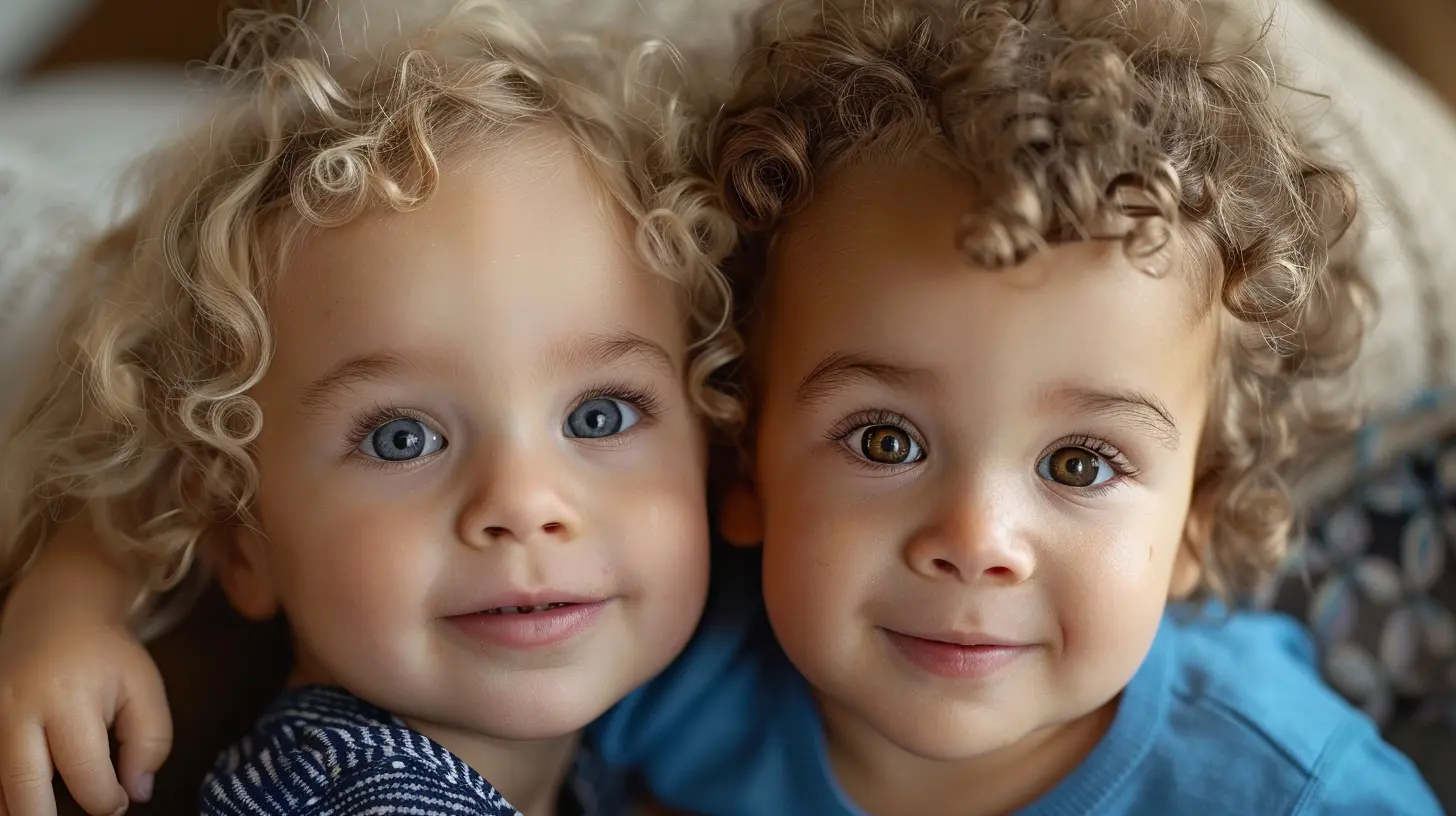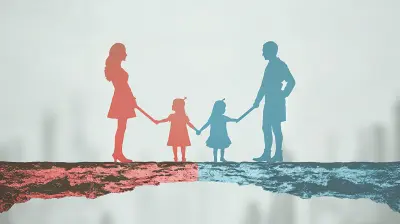Raising Kind, Compassionate, and Empathetic Children
18 November 2025
Let’s face it — parenting is no small feat. It’s equal parts joy, chaos, and second-guessing if you’re doing the right thing. And in today’s world, raising kids to be smart and successful is one thing, but raising kind, compassionate, and empathetic children? That’s the gold standard. That’s the legacy every parent dreams of leaving behind.
But how exactly do we raise little humans to grow up caring about others, showing empathy, and genuinely being kind—even when no one’s watching? Let’s break it down, not with complicated theories or fancy parenting jargon, but with real talk, heart-to-heart advice, and a dash of practical magic.
Why Raising Kind, Compassionate, and Empathetic Children Matters More Than Ever
We live in a fast-paced, screen-obsessed, competition-fueled world where sometimes kindness feels like a lost art. But here’s the thing: empathy is what makes us human. Compassion connects us. And kindness? It changes everything.When we raise children who lead with kindness, we're setting them up to form better relationships, communicate more deeply, and navigate life with resilience and emotional intelligence. Those traits aren’t just nice to have — they're must-haves in a world that desperately needs more connection, understanding, and heart.
The Big Three: Kindness, Compassion, and Empathy — What’s the Difference?
Before diving into the "how," let’s quickly decode the "what."- Kindness is the act — helping, sharing, speaking gently.
- Compassion is the feeling — caring deeply when someone’s hurting.
- Empathy is the understanding — putting yourself in someone else’s shoes.
In simpler terms? Kindness is doing. Compassion is feeling. Empathy is seeing. And together, they create a powerful foundation for emotionally intelligent, happy humans.
Start With You: Be the Model Your Child Mirrors
Here’s the truth that stings a bit — your kids learn way more by watching you than by listening to you. Yep, let that sink in.You can talk about kindness until you're blue in the face, but if your everyday actions scream sarcasm, judgment, or indifference, guess what your child is picking up on? You.
So the first step in raising kind, compassionate, and empathetic kids is simple (but not always easy): practice what you preach. Hold the door open. Speak gently. Listen without interrupting. Apologize when you’re wrong. Offer help without being asked. Your behavior becomes their blueprint.
Make Kindness a Daily Practice, Not a One-Time Lesson
Kindness isn’t a switch you flip. It’s a habit. A lifestyle. A culture you create at home.Think of it like brushing teeth — you wouldn’t skip a day and expect clean teeth, right? Same goes for practicing kindness.
Small Acts, Big Impact
Encourage small, everyday acts of kindness. A few ideas:- Saying “thank you” without being reminded
- Helping a sibling without being told
- Writing kind notes for friends or teachers
- Donating clothes or toys — and involving your child in choosing what to give
These daily habits build a muscle. The more they use it, the stronger it gets.
Use Real-Life Moments as Teaching Opportunities
Real life is packed with teachable moments — if you’re paying attention. Someone cut you off in traffic? A classmate was mean at school? A homeless person asks for change?Instead of brushing past it, pause and talk it through.
Ask:
- “Why do you think that boy acted that way?”
- “How would you feel if that happened to you?”
- “What could we do to help?”
Don’t lecture — be curious together. Your questions help your child flex their empathy muscles and dig deeper into understanding people’s behavior beyond face value.
Praise the Right Things: Focus on Effort and Intent
Let’s be honest: most of us are wired to say, “Good job!” when our kids get an A or score a goal. But what about when they show kindness? Share without prompting? Stand up for a friend?Recognize that.
Say things like:
- “I loved how you comforted your friend when they were sad. That was so thoughtful.”
- “It was kind of you to let your brother have the last cookie — you really care about others.”
This kind of praise tells your child that these qualities matter just as much — if not more — than academic or athletic achievements.
Books, Movies, and Stories That Bring Empathy to Life
Stories open hearts. They let kids walk in someone else’s shoes while sitting comfortably in their PJs. And honestly? Sometimes a good book or movie teaches more than a formal lesson ever could.Some empathy-building choices:
- Books: “Have You Filled a Bucket Today?” by Carol McCloud, “The Invisible Boy” by Trudy Ludwig, and “Last Stop on Market Street” by Matt de la Peña.
- Movies: “Inside Out,” “Wonder,” “Up,” and “Paddington.”
Afterward, talk about it. Ask: “How do you think that character felt?” or “What would you have done in their shoes?”
These simple conversations build understanding — one story at a time.
Create a Family Culture of Compassion
Want a simple way to raise kind kids? Make it part of the family brand.Create a home where kindness is expected, not exceptional. Compassion should be the air they breathe, not something “nice to do when you have time.”
Try This:
- Start a “kindness jar.” Every time someone in the family does something kind, write it down and drop it in. Read them together at the end of the week.- Make monthly service projects a family tradition — volunteering, helping neighbors, making care packages.
- Introduce a “golden hour” where the whole family does something kind — write letters, bake for a friend, call a grandparent.
When kindness is your family’s normal, your kids grow up thinking it’s everyone’s normal.
Set Healthy Emotional Boundaries
Here’s a curveball: teaching empathy also means teaching boundaries.Wait, what? Isn’t that the opposite of compassion?
Not at all.
Real empathy includes understanding others without absorbing their emotions completely. You want your child to care, yes, but also protect their own well-being.
Teach your child:
- It's okay to say "no"
- You can be kind without being a doormat
- You’re allowed to step back when you need a break
Empathy with boundaries? That’s emotional maturity at its finest.
Embrace Mistakes and Use Them to Grow
No child is going to be kind and compassionate 100% of the time. Heck, no adult is either.Kids will make selfish choices. They’ll say hurtful things. They’ll have meltdowns and slam doors. That’s part of growing up.
Don’t shame them — guide them.
Use mistakes as opportunities to reflect:
- “How do you think your words made your sister feel?”
- “What could you do differently next time?”
- “How can you make it right?”
When you make kindness the standard but also allow room for do-overs, your child learns that it’s not about being perfect — it’s about being better.
Encourage Emotional Vocabulary
Empathy starts with emotions — and kids can’t express what they don’t have words for. So give them the language.Instead of just “mad” or “sad,” introduce words like:
- Frustrated
- Embarrassed
- Disappointed
- Lonely
- Excited
- Grateful
Have regular “emotion check-ins” where everyone shares how they're feeling — even you. It creates safety, trust, and deep emotional awareness.
Monitor Media and Create Space for Real-World Connections
Screens aren't the enemy — but they can drown out empathy if left unchecked.Social media, video games, and online content can desensitize kids to real emotions. It’s just pixels on a screen. But real life? That’s where empathy shines.
Encourage:
- Face-to-face play
- Outdoor adventures
- Conversations with people from different backgrounds
Human connection fosters human compassion. Period.
Be Patient: This Is a Marathon, Not a Sprint
Let’s be real — you won’t see results overnight. Raising kind, compassionate, and empathetic kids isn’t a 30-day challenge. It’s a long game.But every patient conversation, every modeled behavior, every bedtime heart-to-heart — those are deposits in your child’s emotional piggy bank.
You may not always see the payout now. But one day — when they comfort a friend, stand up for someone, or cry at someone else’s pain — you'll know it was all worth it.
Final Thoughts
We all want to raise kids who do well in life. But more than that, let’s raise kids who do good.Kids who open hearts. Who show up when it matters. Who lift others — not because they’re told to, but because it’s just who they are.
Kindness. Compassion. Empathy.
These aren't just “nice-to-have” traits. They’re the soul of a good life. And when you raise your child with these values, you’re not just shaping their future — you’re shaping the world.
So keep showing up. Keep guiding. Keep leading with love.
You’ve got this.
all images in this post were generated using AI tools
Category:
Parenting AdviceAuthor:

Tara Henson
Discussion
rate this article
1 comments
Peter Rhodes
What a delightful read! Cultivating kindness and empathy in our kids creates a brighter, more compassionate future! 🌟
November 18, 2025 at 5:53 AM

Tara Henson
Thank you! I'm glad you enjoyed it. Together, we can shape a kinder future! 🌟


